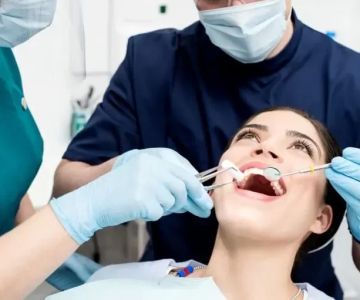Emergency Dentistry Services and Solutions
Emergency dentistry is a crucial aspect of dental care. Whether it's a sudden toothache, a knocked-out tooth, or a cracked or chipped tooth, prompt and appropriate treatment is essential. At various dental clinics and practices, professionals are dedicated to providing immediate assistance and solutions for these unexpected dental issues.
Common Dental Emergencies
The most common reasons for seeking emergency dentistry include accidents and toothaches. Toothaches can be caused by infections or injuries. If you're suffering from a toothache, it's vital to contact a dentist promptly. Accidents that result in teeth being knocked out or damaged also require immediate attention. For instance, if a child's permanent tooth gets knocked out, it's important to try to place the tooth back in the socket or keep it moist in a clean holder until you can reach a dentist. Chips, cracks, and abscesses are other common emergencies that demand swift action.
Availability and Contact Information
Dental clinics are often open seven days a week, with extended hours to accommodate emergency cases. Many offer online appointment booking and have dedicated answering services to handle messages when the office is closed. If you have a dental emergency, it's crucial to know the appropriate contact numbers. For example, at Loma Linda University, you can call 909-558-4222 or 909-558-4000 for after-hours services. Emergency Dental Service also provides a 24-hour patient center at 1-888-896-1427 to connect you with a local dentist.
Specialized Treatments and Technologies
Emergency dentists are equipped to handle a wide range of procedures, from simple fillings to more complex treatments. Technologies like digital X-rays and CEREC® for crowns in one visit contribute to efficient and accurate diagnoses and treatments. Additionally, services such as LANAP laser dentistry and scaling and root planning may be part of the solutions offered for specific dental emergencies.
Preventive Measures and Tips
Preventing dental emergencies is always better than dealing with them. Some suggestions include using mouthguards during sports activities, ensuring children are in seatbelts or car seats, childproofing the home, and following good oral hygiene protocols. Regular visits to the dentist also play a significant role in maintaining oral health and reducing the risk of emergencies.
Emergency dentistry is not something to take lightly. It's a lifeline when unexpected dental problems arise. By being informed and knowing where to turn in times of crisis, you can ensure the best possible outcome for your dental health. So, always be prepared and act quickly when a dental emergency strikes.



 Westgate Dental Arts
Westgate Dental Arts Coventry Family Dental
Coventry Family Dental Familia Dental
Familia Dental Dr. Daniel S. Fife, DDS
Dr. Daniel S. Fife, DDS Dentistry At Suburban Square: Michael I. Wollock, DMD
Dentistry At Suburban Square: Michael I. Wollock, DMD Comfort Care Dental
Comfort Care Dental The Importance of Oral Health Education During Pregnancy for a Healthy Pregnancy
The Importance of Oral Health Education During Pregnancy for a Healthy Pregnancy Why Skipping Dental Checkups Can Lead to Bigger Oral Health Problems
Why Skipping Dental Checkups Can Lead to Bigger Oral Health Problems Best Tips for Brushing Your Teeth Properly for Healthy Gums: Essential Techniques for Oral Health
Best Tips for Brushing Your Teeth Properly for Healthy Gums: Essential Techniques for Oral Health Advantages of Porcelain Dental Restorations
Advantages of Porcelain Dental Restorations How Can Diabetes Cause Tooth and Gum Problems? Preventing and Managing Oral Health Issues
How Can Diabetes Cause Tooth and Gum Problems? Preventing and Managing Oral Health Issues Healthy Habits for Promoting Good Oral Health and Hygiene: Tips for a Healthy Smile
Healthy Habits for Promoting Good Oral Health and Hygiene: Tips for a Healthy Smile